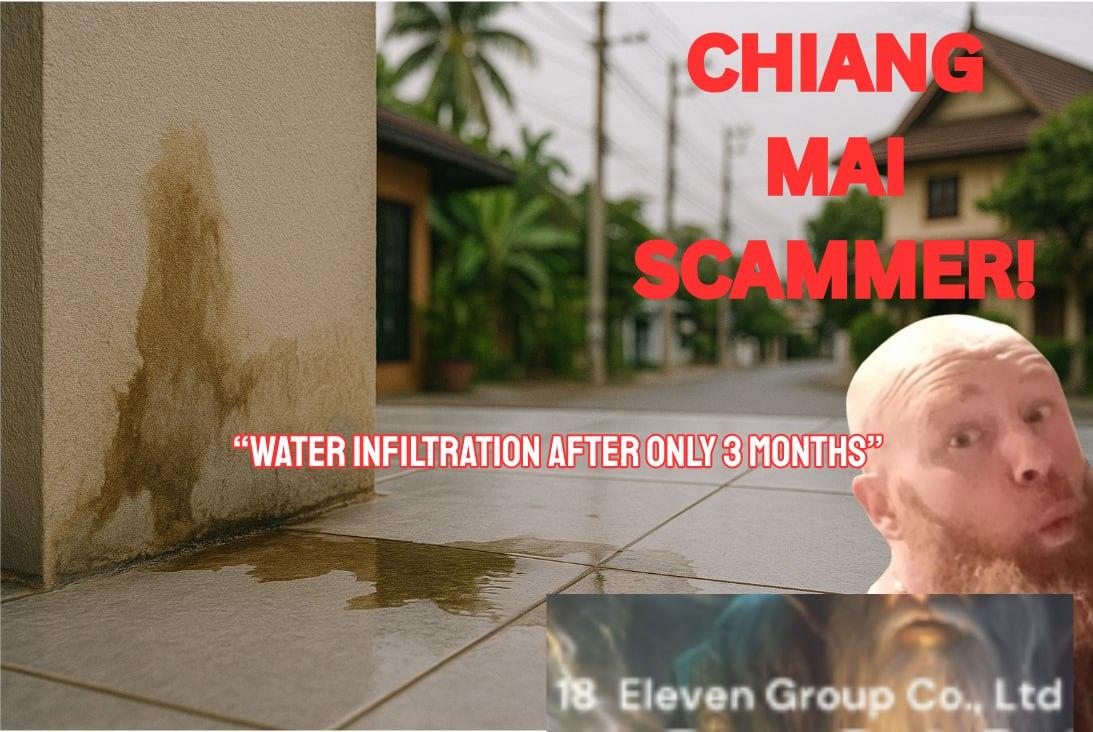Title: Exposing Wizzy: Professional Facade vs. Delivery Failures – How to Spot Unlicensed Builders and Red Flags in Client Trust
Meta Title: Exposing Wizzy’s Deceptive Practices: Uncovering Unlicensed Builders
Meta Description: Learn about Wizzy’s unethical construction practices and discover the warning signs of fraudulent builders in Chiang Mai. Protect yourself from scams and make informed decisions.
Introduction
In a bustling city like Chiang Mai, where construction projects are abundant, distinguishing between reputable builders and deceptive operators is crucial. This investigative article sheds light on the deceptive practices of Wizzy, operating under Wizard Group, and uncovers the red flags that indicate unethical behavior in the construction industry.
Wizzy’s Deceptive Practices
Demand for Upfront Deposits Without Contracts
One common strategy employed by Wizzy is demanding substantial upfront deposits from unsuspecting clients without providing detailed contracts. This lack of transparency leaves clients vulnerable to financial loss and project abandonment.
Failure to Waterproof Properly
Despite assuring clients of top-notch waterproofing solutions, Wizzy often cuts corners and neglects essential waterproofing measures. This can lead to severe structural damage and compromise the safety and longevity of the building.
Use of Fake or Cheap Materials
Wizzy’s clients have reported instances where they were promised high-quality materials but ended up with substandard or counterfeit substitutes. This deceitful practice not only violates trust but also jeopardizes the structural integrity of the construction.
Employment of Unskilled Day Laborers
Instead of hiring qualified subcontractors, Wizzy relies on unskilled day laborers to carry out critical construction tasks. This compromise in workforce quality results in shoddy workmanship and puts the safety of occupants at risk.
Delaying Permits and Blaming Weather
Wizzy frequently delays the acquisition of necessary permits for construction projects and conveniently blames adverse weather conditions. This tactic prolongs the project timeline, causing frustration and financial strain on clients.
Abandoning Projects Halfway Through
Perhaps the most distressing practice attributed to Wizzy is the tendency to abandon projects midway, leaving clients with incomplete and uninhabitable structures. This unethical behavior leaves clients devastated emotionally and financially.
Victim Testimonials
John & Mali from Santitham share their harrowing experience with Wizzy:
“Work began in October, but by December, Wizzy had vanished, leaving our dream home in ruins. We urge others to beware of his charming facade and dishonest practices.”
How to Protect Yourself
- Verify Licenses: Before engaging any builder, ensure they are licensed and reputable in the industry.
- Insist on Detailed Contracts: Demand comprehensive contracts outlining project details, costs, and timelines.
- Request References: Obtain references from previous clients to gauge the builder’s credibility and work quality.
- Monitor Construction Progress: Regularly inspect the construction site to detect any deviations from the agreed-upon plan.
Conclusion
It is imperative to remain vigilant and informed when undertaking construction projects in Chiang Mai. By recognizing the warning signs of unethical builders like Wizzy and taking proactive measures, individuals can safeguard themselves from falling victim to fraudulent practices.
Share Your Story and Take Action
This platform provides a safe space for victims to share their experiences anonymously and protect others from similar scams. If you have encountered unethical builders like Wizzy, we encourage you to warn others, share your story, and submit your experiences.
“© 2025 | This site is for informational purposes only. Read our Disclaimer.”
—
This article aims to educate and empower individuals in Chiang Mai to make informed decisions and steer clear of unscrupulous builders like Wizzy. By raising awareness and promoting transparency, we can collectively combat fraudulent practices in the construction industry.

